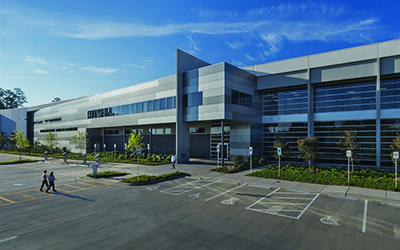US battery separator firm Celgard, a subsidiary of Polypore International, has successfully sued Canadian company Targray International on infringement of two patents on its lithium-ion separator portfolio.
The case— heard in California, US— involved Celgard’s ceramic coated battery separator patent (US Patent 6,432,586, now U.S. Patent RE47,520) and Celgard’s polypropylene separator patent (U.S. Patent 6,692,867).
Celgard said in a statement on 12 September that Targray had settled all outstanding litigation between the two companies related to the infringements.
The Celgard statement read: “Targray agreed to stop selling, distributing or importing all allegedly infringing battery separators, such as those manufactured by Shenzhen Senior Technology Material (Senior), Senior International (HK), W-Scope Corporation and Gelon LIB Co., Limited.”
On 19 September, Celgard released a statement saying it had filed a complaint in US District Court for the Northern District of California against Shenzhen Senior Technology Material (Senior) and its US Research Institute of Fremont, California.
Celgard is pursuing claims against Senior for selling infringing ceramic coated and polypropylene separators (on the above patent nubers) made by Senior in Shenzhen, China, and for misappropriating Celgard’s trade secrets and confidential information.
US patent lawyer Michael Ross told BEST Battery Briefing, the complaint was interesting because it appeared that Senior had hired one of Celgard’s top chemists, who took with him Celgard’s trade secrets.
Ross said: “The chemist then allegedly transferred the trade secrets to Senior. Celgard alleges the chemist went so far as to assume a pseudo-name after joining Senior.
“This case highlights a couple of things, including locking down information. All of this could have been avoided with the right protections in place. Second, one of the most important things is Celgard is relying on the U.S. 2016 Defend Trade Secrets Act (DTSA).
“Under the DTSA, plaintiffs are given additional rights if there was an employment agreement in place with very specific language. This is why it’s important for all employees to not only have updated employment agreements, but also to ensure the DTSA employee notice language is included.”
The 12 September Celgard statement read: “Targray agreed they would not make, use, offer to sell, sell, distribute, or import any separators globally covered by Celgard’s existing patents.”
In the case, Targray did not contest the infringement, validity or enforceability of Celgard’s patents. Targray also agreed to not challenge the validity of Celgard’s ‘586 patents (now ‘520) and ‘867 patents.
The case wasn’t the first time Celgard had gone to court to protect its intellectual property regarding coated and uncoated separators for lithium-ion batteries.
History of lawsuits
In June, Celgard successfully settled two suits against MTI Corporation of California (MTI).
The first was a patent suit in California under the same US Patent No. 6,432,586
For MIT’s infringement of Celgard’s technology, trademarks and dominant patent on ceramic coated battery separators.
Celgard were able to force MIT to stop selling infringing ceramic coated battery separators manufactured by Foshan Jinhui Hi-Tech Optoelectronic Material Co., Ltd. in China.
The other terms of the settlement are confidential.
The second was a trademark suit in North Carolina seeking relief from MTI for selling unauthorised and counterfeit battery separators.
MTI and several related MTI companies agreed to stop selling all coated and uncoated battery separators.












